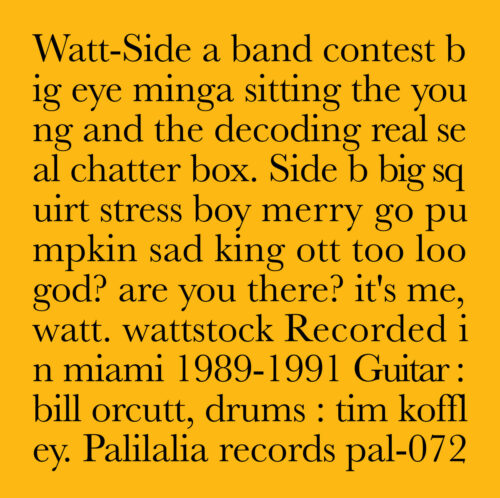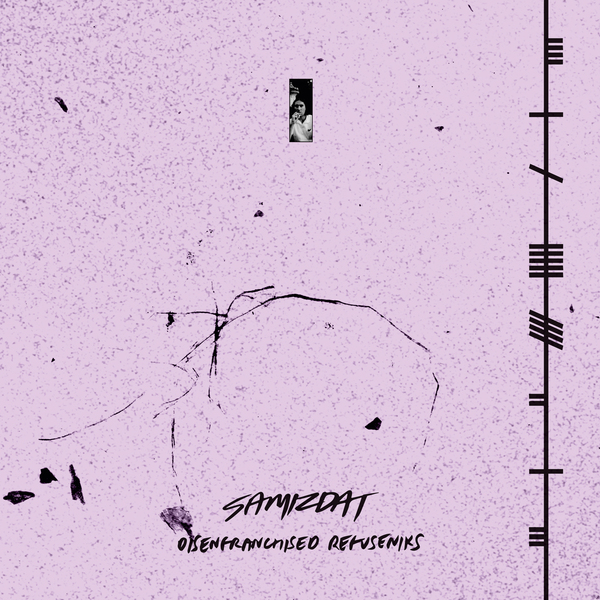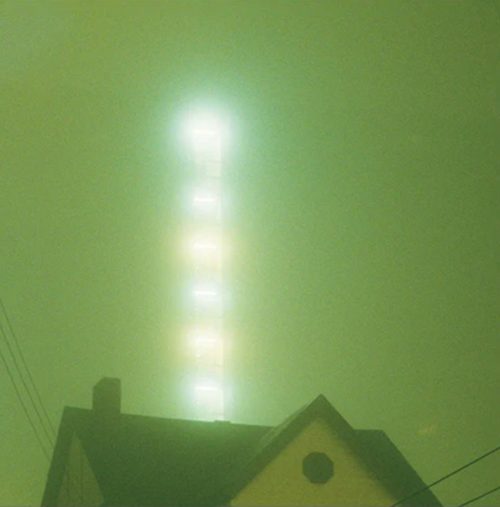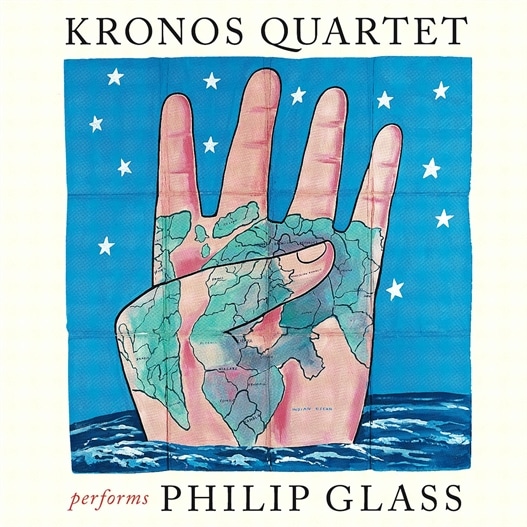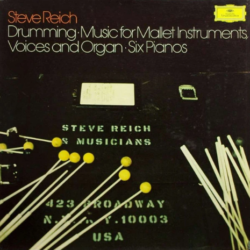Recorded in Miami 1989-1991
Label: Palilalia
Genre: Experimental
$32.99
Availability: In stock
“I was hanging out with Bill Orcutt at the 930 Club nearly 30 years ago, watching a famous post-rock band (who shall remain nameless, but whose moniker contained two-and-a-half times more articles and conjunctions than nouns) when he said: ‘This band is like my band in college — all major 7th and 9th chords.’ I relate this to emphasize that in the case of Bill Orcutt and Harry Pussy, the seemingly untutored ooze of ‘Please Don’t Come Back From the Moon’ and ‘Girl With Frog’ had its genesis in something far more Apollonian than is usually understood. It’s debatable whether or not Watt, the duo of Orcutt and drummer Tim Koffley featured on Recorded in Miami, is the above referenced grad-school band. Watt is not resplendent with jazz chords, but it’s certainly more tutored, offering a mannered link between the contemporaneous Thunders-esque punk of Orcutt’s Trash Monkeys and Harry Pussy’s mayhem. The continuity with Harry Pussy is more than temporal — Recorded in Miami is Orcutt’s first use of the four-string guitar, and Harry Pussy claimed the same amp and drum kit. The resemblance more or less ends there. To further put Recorded in Miami — made on Orcutt’s Walkman, Rat Bastard’s North Miami studio, and South Miami’s Natural Sound (total bill $289) — into context, consider the fecundity of the underground music world as the ’80s rolled into the ’90s. It’s hard to relate to those who missed it, but it was a time when post-hardcore hadn’t quite given way to the bloat of grunge, when the Minutemen held sway (for the moment) over Led Zeppelin. The indie world was ruled by an ever-propagating compost heap of jagged guitar bands like TFUL282, Truman’s Water, and (to crank it back a couple years) Phantom Tollbooth. And in some ways (although Orcutt swears Watt’s prime influences were James Blood Ulmer and Fred Frith’s Massacre), this record seems very much cut from that decade-ending cloth, seemingly only one vocal overdub away from a Homestead catalog number. Track after track (mostly titled after episodes of Art Clokey’s slyly Buddhist TV masterwork, Gumby), Recorded in Miami’s tracks spill over with right angles, rockist tropes, and verse/ chorus structures, from the Minutemen-oid funk of ‘Band Contest’ to the stroked Moore-Ranaldo-isms of ‘The Young and the Decoding.’ Yet Orcutt’s fretboard-spanning angular melodic runs are right up front in the latter, and the final two tracks introduce a bit of the explosive chaos that would follow when Adris finally claimed the drum kit. Consider ‘Wattstock,’ where Koffley forms the bedrock for an extended Orcutt hotbox of instantly-composed harmolodics. Or ‘God Are You There, It’s Me, Watt,’ where we can hear the spontaneous vocal bursts (the only vocals on the album) that would re-emerge on Orcutt’s early solo records. Watt began to crumble when Koffley, as drummers will do, yearned for rhythmic grids of increasing complexity, while Orcutt instead wanted to ‘smoke more pot and improvise.’ For a few records with Harry Pussy, Orcutt would get his wish (though some of the structuralism of Watt would creep into later records). But we shouldn’t regard Recorded in Miami as mere transitional scraps of juvenalia, or stunt-rock delivered for the mere thrill of pulling it off. Rather, it’s an early, major piece of the unfolding and complex puzzle of Orcutt’s music. A foundation. And without the earth beneath our feet, how can we ever reach the sky?” –Tom Carter

